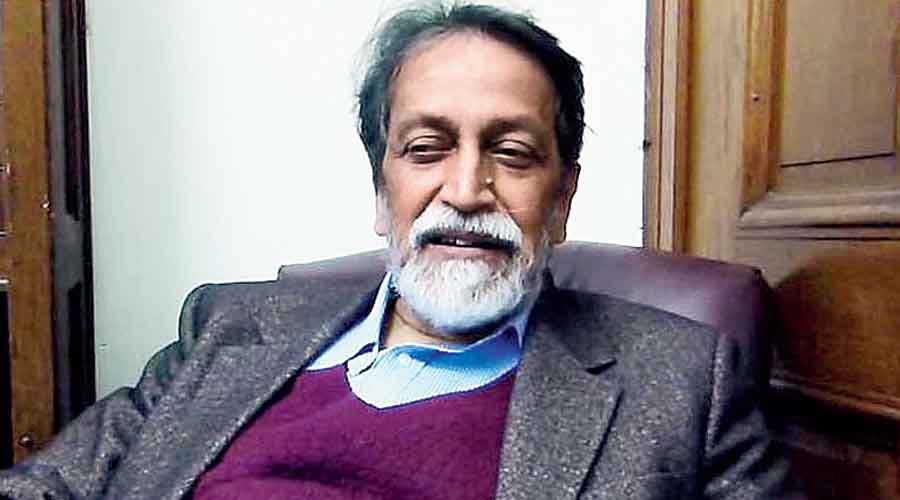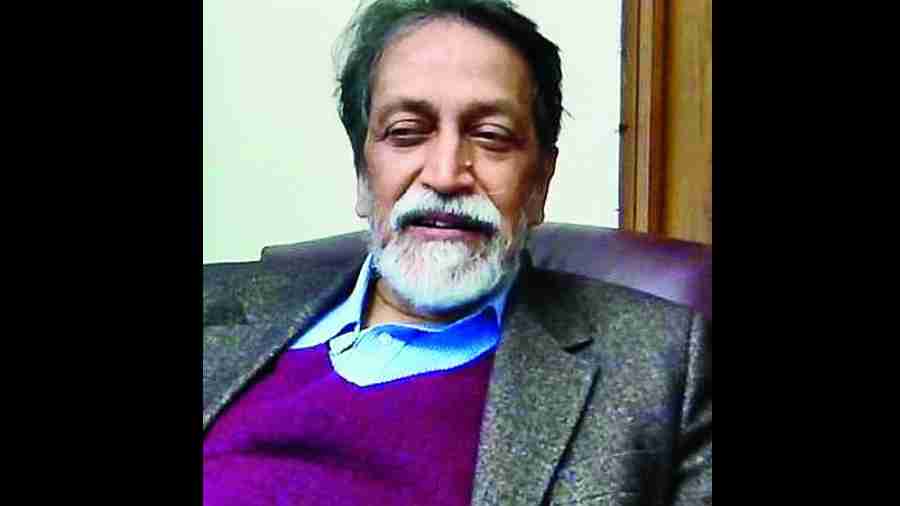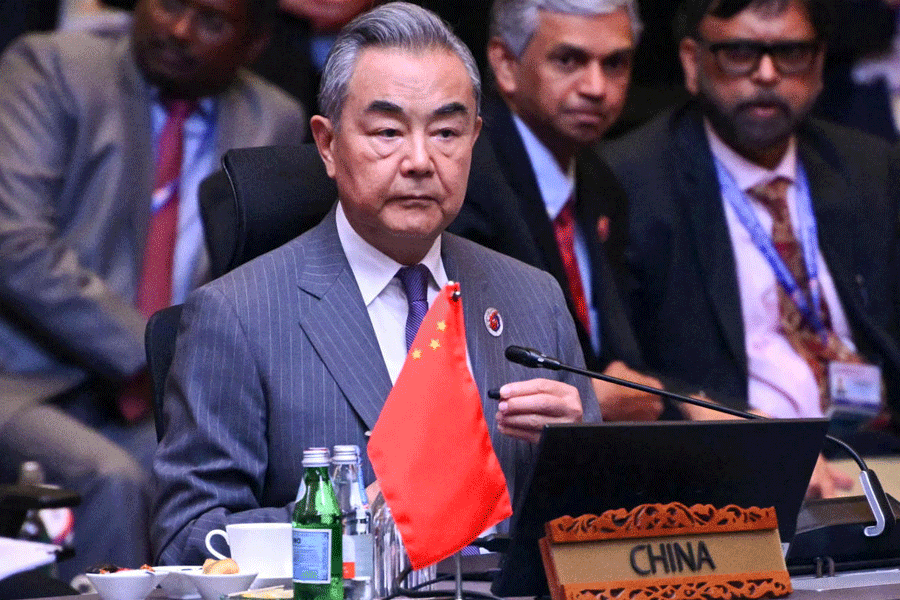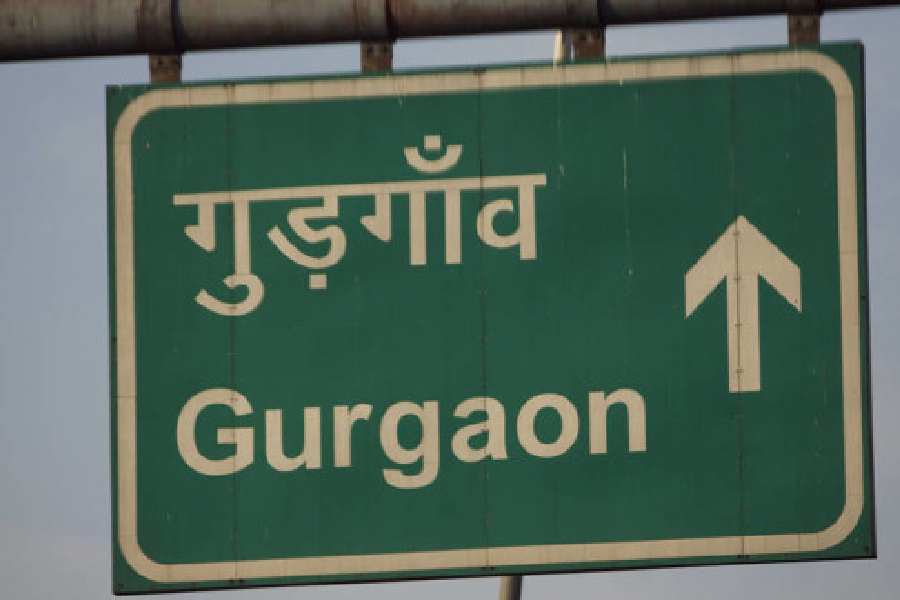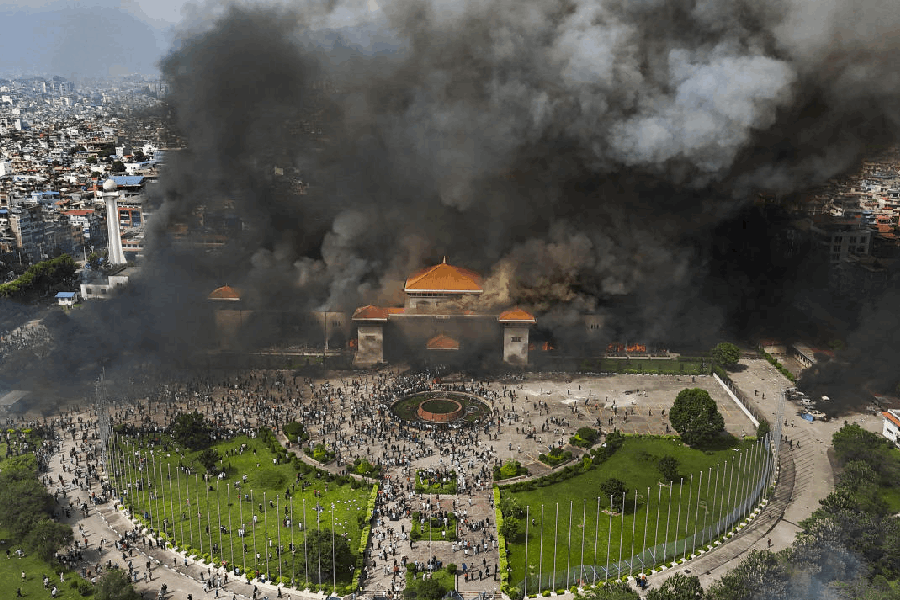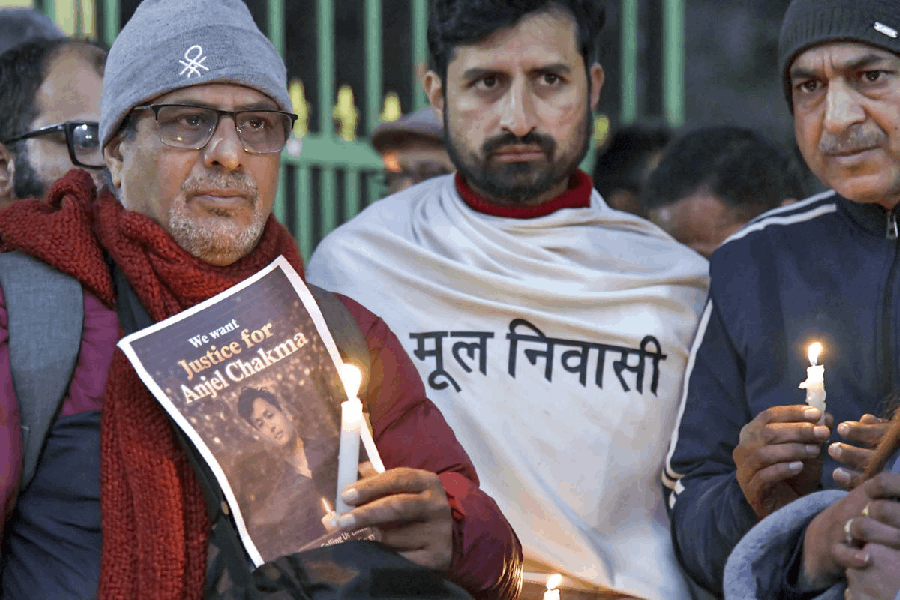If RSS chief Mohan Bhagwat is worried about the supposedly higher population growth among Muslims, he should advocate the spread of education among Muslim women and oppose the hijab ban in Karnataka that is keeping Muslim girls out of educational establishments: Prabhat Patnaik, professor emeritus with JNU The first part was published on October 17.
Q: If you analyse the entire past of the RSS, do you come across a single example of sympathetic understanding on its part of the role and position, genuine and alienated, of the Muslim in the Indian scenario?
Patnaik: The Muslim, as the RSS sees him, is a pure construction, unrelated to reality. (This pure construction is different from the construction of concepts that characterises thought in general). In fact, the RSS uses this phantom notion of a Muslim to attack flesh-and-blood Muslims.
This construction, however, can retain its integrity only if it is not empirically grounded, only if the empirical Muslim is not allowed to intrude into the picture. That is why you will find that very few staunch RSS cadres have any acquaintance with any real Muslim; and that is also why, when ordinary Hindus have any contact with a real Muslim, the RSS dissuades them by giving all such contacts a fantastic interpretation. Thus, if a Hindu girl marries a Muslim man, it becomes “love jihad”, a union with an ulterior motive.
This is not to say that persons who follow the RSS do not have Muslim contacts at all, or that persons with Muslim contacts do not get into the RSS flock, but typically their justification in such cases would be: “My Muslim contact is an exception.”
The question of the RSS developing any sympathy for the empirical Muslim or appreciating his role in any context runs contrary to its construction of the Muslim. It would either not have any sympathetic understanding of any empirical Muslim, or if perchance it does, it would do so with the idea that the object of its sympathy is not really a Muslim.
Q: Lalu Prasad has declared that the RSS should be banned as well. Your studied comment on this weaving of equivalence?
Patnaik: The RSS had been banned by the then home minister, Sardar Patel, following Gandhi’s assassination, but the ban was lifted when it gave an undertaking that it would abjure all political activity. It has blatantly violated that promise. Even the argument that it has never directly engaged in political activity (though it has done so through political parties that constitute its front organisations) cannot stand scrutiny any longer.
If it were a pure socio-cultural organisation, then foreign ambassadors, industrialists, educationists and prominent Muslims, not to mention ministers and BJP bigwigs, would not be making a beeline to meet its chief, Mohan
Bhagwat. Hence, even if we ignore its active role at present in fomenting communal hatred, it would still be liable to the serious charge of having violated its original undertaking. And, of course, the principle on which the PFI is banned applies equally to the RSS.
I am, however, generally opposed to the idea of banning organisations. If they engage in any criminal activity like terrorism, then that should be dealt with under the law of the land. But as far as their influence on people is concerned, that should be combated through counter-influence and through political activity by progressive, secular forces.
Q: Bhagwat’s annual Vijaya Dashami address this year dwells on a religion-based population imbalance and the silence of the minority community when it comes to criticising Islamist terrorism. On two other recent occasions, he has called for the total abolition of the caste system and urged that all Dalits and marginal groups be brought under the huge Hindutva umbrella. What are the political compulsions behind the pronouncement? Do these remind you of the famous French adage: The more it changes (outreach to Muslims and Dalits) the more it remains the same (Hindutva)?
Patnaik: In my answer I would like to concentrate on the aspect of population imbalance. Several writers have already pointed out that, according to the Government of India’s own National Family Health Survey, while the fertility rate has declined in India for all groups, this decline has been faster among Muslims than among other religious groups. In fact, the difference between the Hindu and Muslim fertility rates now is quite marginal, because of which many talk of a “convergence in fertility rates” across religious groups.
It is well established all over the world that a major determinant of population growth is the level of education among women. If Mohan Bhagwat is so concerned about the supposedly higher rate of population growth among Muslims, he should advocate the spread of education among Muslim women; and he should oppose the stand of the Karnataka government headed by the BJP, his own organisation’s front party, that is keeping Muslim girls out of educational establishments through its hijab ban.
But he does not do so, from which one can infer that he is not really worried about the so-called differential rates of population growth across these communities, which he knows to be untrue, but rakes it up only as a means of targeting the minority community. This completely belies the so-called “reaching out” he is supposed to be doing.
Even in discussing the “convergence” of fertility rates among religious communities, we are getting trapped in Bhagwat’s discourse. He has talked of the need for a population balance but a population imbalance, far more serious than between religious groups, exists between states in India.
Kerala and, to a lesser extent, other southern states, have been remarkably successful in effecting population control, while northern states like Uttar Pradesh have been much less successful. This has actually been a disadvantage for Kerala whenever the devolution of central funds occurs on the basis of population. This differential, therefore, requires urgent addressing because it entails penalising success in population control.
If Bhagwat is really concerned with population balance per se, he should be asking states like Uttar Pradesh to reduce birth rates. But his sole preoccupation is with the Hindu-Muslim dichotomy, where each of these categories is taken as an integrated and pure totality, and that too without drawing distinctions between, say, the “Kerala Muslims” and “UP Muslims”, and the “Kerala Hindus” and “UP Hindus”.
His so-called “outreach” to Muslims, therefore, involves a logical contradiction: it does not visualise an overcoming of differences but a perpetuation of differences within which adjustments have to be made by the minority community if it hopes to be “acceptable”.
Exactly the same holds on his stand vis-a-vis Dalits. If Bhagwat’s idea is to overcome differences between Dalits and upper caste Hindus, he should be welcoming marriages across these two groups, should be castigating atrocities on Dalits which are actually growing, and should be directing his organisation to protest against such atrocities. But none of this has been on the RSS agenda. His professed concern for Dalits therefore appears a mere electoral gambit.
The overcoming of differences between existing categories requires the creation of a supra-concept that transcends existing categories. The Indian Constitution sought to create such a supra-concept in the idea of the “citizen” with rights in a secular State. To seek a Hindu Rashtra in opposition to this conception, and yet talk of overcoming differences, is a contradiction in terms.

